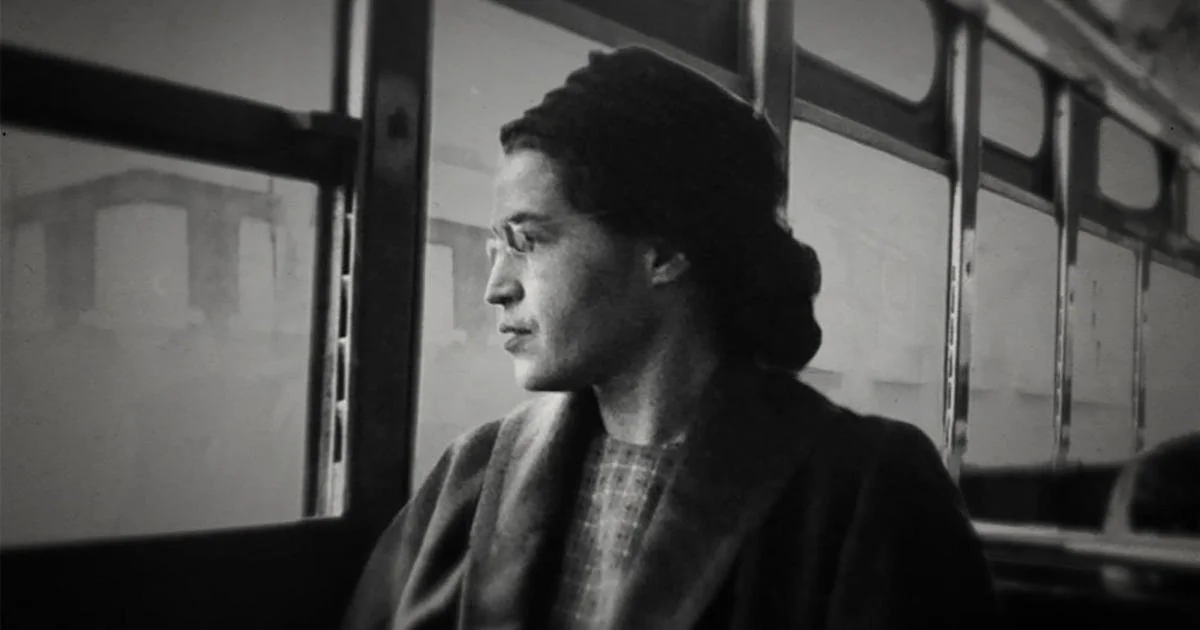The MTA’s Tribute to Rosa Parks
To honor Rosa Parks and her fight for justice, the Maryland Transit Administration (MTA) provides free rides on all its buses, trains, and subways on Transit Equity Day, which coincides with Rosa Park’s birthday (February 4th). This gesture highlights the importance of public transportation in ensuring equal opportunities for all. The MTA strives to make transportation affordable, accessible, and environmentally friendly for everyone in Maryland, promoting mobility and success for all.
Remembering Rosa Parks’ Impact
Rosa Parks’ refusal to give up her seat on a segregated bus in Montgomery, Alabama, in 1955 sparked the Montgomery Bus Boycott, a pivotal moment in the fight for racial equality. The MTA honors her legacy with the “Rosa Parks Bus,” a replica of the bus where her historic act took place.
This mobile museum travels throughout the city, serving as a powerful reminder of the struggle for civil rights and inspiring future generations to continue the fight for equality. The bus also hosts educational programs and workshops, promoting inclusivity and fairness within the transit system.
The MTA’s Ongoing Commitment to Transit Equity
The MTA recognizes that the fight for transit equity didn’t end with Rosa Parks. They are dedicated to:
- Expanding affordable transit options: Making public transportation accessible to people of all income levels.
- Improving accessibility: Ensuring that the transit system is usable for people with disabilities.
- Promoting fairness: Addressing historical inequities in transportation access, particularly in underserved communities.
- Building a diverse workforce: Reflecting the diversity of the city it serves within the MTA’s own ranks.
The Rosa Parks Bus and Transit Equity Day are symbolic gestures, but they represent the MTA’s commitment to honoring Rosa Parks’ legacy. They serve as a reminder that the fight for transit equity is ongoing, and everyone has a role to play.
Where Is the Original Rosa Parks Bus Now?
The bus Rosa Parks rode on, Montgomery City Lines bus number 2857, wasn’t immediately recognized for its historical significance. After years of service, it was retired and sadly, left to deteriorate. It seemed as if this piece of history might be lost forever.
Fortunately, the bus was rediscovered, though in rough condition. Recognizing its importance, the Henry Ford Museum stepped in to save it. They undertook the painstaking process of restoring the bus, piece by piece, to its 1955 appearance.
Today, the meticulously restored bus is on display at the Henry Ford Museum, a powerful reminder of the Civil Rights Movement and the importance of standing up for what’s right.
The Cleveland Avenue Bus: A Symbol of Segregation
While the exact bus Rosa Parks rode on that fateful day is lost to history, we know it was a Cleveland Avenue bus. These buses, like many across the segregated South, enforced strict rules to maintain racial separation. Black passengers were forced to board at the front, pay, exit, and then re-enter through the back door to sit in designated “colored” sections. These sections could be altered or removed at the driver’s whim, highlighting the arbitrary and dehumanizing nature of segregation.
Rosa Parks’ refusal to give up her seat, which was in the front row of the “colored” section, directly challenged this power dynamic. Her action was a carefully planned act of resistance, not a spontaneous decision. Parks was an active member of the NAACP and a seasoned advocate for social justice.
Rosa Parks After the Boycott: A Life of Perseverance
Rosa Parks’ act of defiance on that Montgomery bus launched a movement, but it also led to significant personal challenges. She and her husband both lost their jobs, facing economic hardship and discrimination because of their stand against injustice. Despite these hardships, Parks continued to travel and speak out against inequality, becoming a symbol of courage and resilience for the burgeoning Civil Rights Movement.
In 1957, facing continued threats and economic hardship, Parks and her family moved to Detroit, Michigan. Life in Detroit did not immediately alleviate their struggles. Parks faced challenges finding decent work, her health suffered, and she continued to grapple with the financial and emotional toll of her activism. Despite these obstacles, she persevered, eventually finding steady work and continuing to advocate for social justice throughout her life.
Rosa Parks’ Bus Auction: A Testament to Her Legacy
In 2001, the bus linked to Rosa Parks’s courageous act sold for an astounding $492,000. This was no ordinary vehicle; it was a tangible piece of history, representing the Montgomery Bus Boycott and the larger fight for civil rights.
The bus’s journey to the auction block was marked by a mix of neglect and rediscovery. After years of service in Montgomery, it was sold to a private individual, eventually ending up in a state of disrepair. Thankfully, its historical significance was recognized, and it was put up for auction.
The Henry Ford Museum, recognizing the bus’s immense historical value, successfully outbid competitors like the Smithsonian Institution to secure this iconic artifact. The museum painstakingly restored the bus to its 1955 condition. Today, visitors to the Henry Ford Museum can step onto the bus, experiencing a tangible connection to Rosa Parks’s bravery and the ongoing struggle for equality.
The high price tag associated with the bus reflects its status as more than just metal and wheels. It stands as a powerful reminder of the struggle for racial equality and the enduring impact of Rosa Parks’ act of defiance, making it a priceless piece of American history.
- Revolution Space: Disruptive Ion Propulsion Transforming Satellites - April 24, 2025
- Race Through Space: Fun Family Game for Kids - April 24, 2025
- Unlocking the Universe: reading about stars 6th grade Guide - April 24, 2025
















